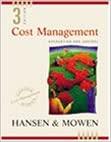Answered step by step
Verified Expert Solution
Question
1 Approved Answer
Information on sales The yarn balls sell for $ 2 5 each. Recent and budgeted sales ( in units ) are as follows: November (
Information on sales
The yarn balls sell for $ each. Recent and budgeted sales in units are as follows:
November actual
December actual
January
February
March
April
May
All sales are on credit, with no discount. The company has found that only of a months sales are collected by monthend. An additional is collected in the month following the sale, and the remaining is collected in the second month following the sale. Bad debts have been negligible, so they can be ignored for the purposes of the budget.
Information on inventory and production
Inventories of finished goods on hand at the end of each month are to be equal to of the following months budgeted sales. As of December st the company had balls of yarn in finished goods inventory. The company has no workinprocess WIP inventory.
Each ball of yarn requires yards of fleece, which the company purchases for $ per yard. It is company policy to keep enough fleece in raw materials to meet of the next months production needs. As of December st the Company had yards of fleece in raw materials inventory. Purchases of raw materials are paid for as follows: in the month of purchase and the remaining in the following month.
Each ball of yarn requires only labour hours minutes to assemble by hand, as most of the work is done by machine. Employees making the yarn are paid $ per hour, and do not work overtime. The Company has enough casualoncall workers that they can call in if additional work is required.
Manufacturing overhead includes all the costs of production other than direct materials and direct labour. The variable component of manufacturing overhead is $ per ball of yarn in production, and the fixed component is $ per month. The $ of fixed manufacturing overhead includes depreciation of $ per month on the machines used to manufacture the yarn. Direct labour hours is used as an allocation base for assigning manufacturing overhead to units produced.
The Companys other monthly operating expenses are given below:
Variable:
Colour licensing $ per ball of yarn sold
Fixed:
Wages and salaries $
Utilities $
Insurance $
Depreciation S&A $
Misc $
All operating expenses are paid during the month in cash, with the exception of the depreciation, as it is not a cash expense.
Balance Sheet as at December st:
Assets
Cash
Accounts receivable
Inventory Raw Materials
Inventory Finished Goods
PP&E
Accumulated depreciation
Total assets
Liabilities and Equity
Financing
Accounts payable, purchases
Dividends payable
Capital stock, no par
Retained earnings see below
Total liabilities and equity
Additional information on cash requirements and financing
Management of the Company requires a minimum ending cash balance each month of $ The Company can borrow money from its bank at annual interest. All borrowing must be done at the beginning of a month, and repayments must be made at the end of a month. Borrowings and repayments of principal must be in round $ amounts. Interest is computed and paid when any repayments occur. Round all interest payments to the nearest whole dollar. Compute interest using whole months, not days. The company wishes to use any excess cash to pay loans off as rapidly as possible.
REQUIRED:
Prepare the following for the company for the quarter ending March st:
a Cash Budget
b Schedule of Cost of Goods Manufactured
c Budgeted Income Statement
with the cost of goods sold computation included in the income statement
You may ignore income taxes for the purposes of this budget
d Budgeted Retained Earnings Statement
e Budgeted Balance Sheet
Step by Step Solution
There are 3 Steps involved in it
Step: 1

Get Instant Access to Expert-Tailored Solutions
See step-by-step solutions with expert insights and AI powered tools for academic success
Step: 2

Step: 3

Ace Your Homework with AI
Get the answers you need in no time with our AI-driven, step-by-step assistance
Get Started


